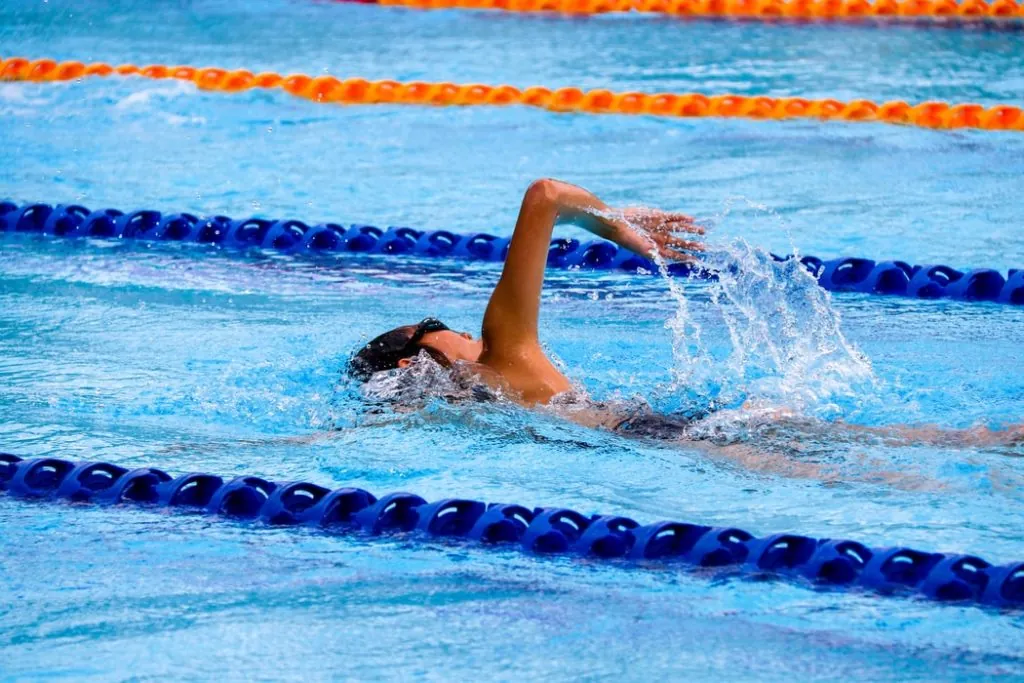
Have you been dealing with pain around your shoulder joint? Does your joint feel unstable or weak? If this is the case, you may be dealing with a swimmer’s shoulder. At MOTION, our team has helped patients dealing with this before. We can provide you with the physical therapy that you need to make a full recovery.
What Is Swimmer’s Shoulder?
Swimmer’s shoulder, or rotator cuff tendonitis, is not a life-threatening condition. However, dealing with it for a prolonged period can lead to a sharp decrease in quality of life. Swimmer’s shoulder is an overuse injury that affects the tendons in the rotator cuff. When these tendons become inflamed or irritated, it can cause pain and require physical therapy to correct.
Swimmer’s Shoulder Symptoms To Watch For
Whether you’re an active person or someone who lives a rather sedentary lifestyle, your body can still suffer from aches and pains every so often. Not every feeling of discomfort dictates the need for physical therapy. However, recognizing when a serious issue is taking place will help prevent your body from sustaining long term damage. If you begin to display any of the below symptoms in your shoulder, we recommend reaching out to our team for help:
- Pain and swelling.
- Inability to raise or lower your arm without pain.
- Experiencing a clicking sensation when raising your arm.
- Loss of mobility and strength.
- Waking up in the middle of the night due to pain.
Potential Complications
As we’ve previously stated, not seeking physical therapy when you’re dealing with a swimmer’s shoulder can have serious complications. The longer you wait for treatment, the more serious the complications can become. Examples of what you put yourself at risk for when you let swimmer’s shoulder linger include:
- Development of chronic pain.
- Permanent lack of mobility.
- Inability to perform motions that involve throwing or lifting.
- Loss of strength.
- Problems with sleeping due to constant pain and discomfort.
- Difficulties keeping your arm held up.
Prevention Methods
For any type of injury, the best form of treatment is always preventing it from happening in the first place. At MOTION, our team would be happy to help you accomplish this. While these methods will not work 100% of the time, they will go a long way in keeping the tendons in your shoulder protected from injuries. Some of the best methods of prevention include the below:
- Take breaks when performing repetitive motions.
- Focus on holding a good posture when you’re sitting, walking, and standing.
- Try to sleep on your back.
- Never try to push through shoulder pain.
- Stretch out your shoulders numerous times a day.
How Physical Therapy Can Help Swimmer’s Shoulder
Physical therapy is an activity-based treatment that aims to promote healing from within an affected area. Through the use of therapeutic stretches and strengthening exercises, you can see a vast improvement in your condition. One of the many benefits this form of treatment brings is the variety of injuries and conditions it can be used to treat. Swimmer’s shoulder is but one of these conditions, which makes our team the perfect choice to administer care. When you choose to work with us, you can expect to experience the below in your shoulder:
- Reduction of swelling.
- Elimination of pain.
- Improvements with flexibility and range of motion.
- Increases in strength.
At MOTION, we know how to spot a patient dealing with a swimmer’s shoulder. If you’re unsure if your shoulder pain will go away on its own, or if it is pointing to something more serious, we recommend you reach out to our team. We can help diagnose the issue and set you up with the appointments of physical therapy you need to make a full recovery. For more information, contact our team today.
